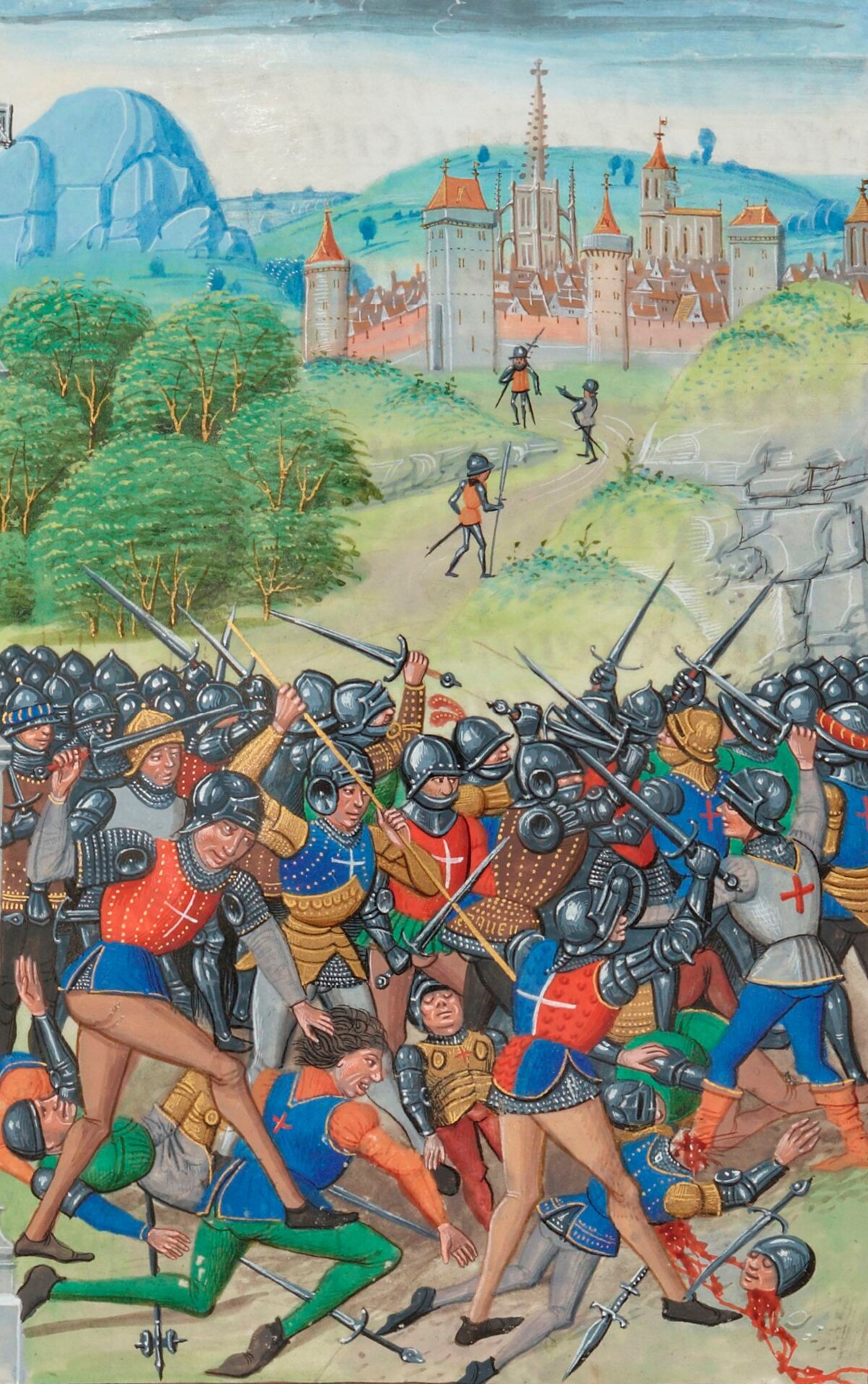
Charles V declares war
Pontvallain, FranceIn 1369, on the pretext that Edward had failed to observe the terms of the treaty, Charles V declared war once again. In August a French offensive attempted to recapture castles in Normandy. Men who had fought in earlier English campaigns, and had already won fortune and fame, were summoned from their retirements, and new, younger men were given commands. When Charles V resumed the war, the balance had shifted in his favour; France remained the largest and most powerful state in Western Europe and England had lost its most capable military leaders. Edward III was too old, the Black Prince an invalid, while in December 1370, John Chandos, the vastly experienced seneschal of Poitou, was killed in a skirmish near Lussac-les-Châteaux. On the advice of Bertrand du Guesclin, appointed Constable of France in November 1370, the French adopted an attritional strategy. The French made territorial gains in the west, re-occupying the strategic provincial capital of Poitiers and capturing many castles.
The English had plundered and burnt their way across northern France from Calais to Paris. With winter coming, the English commanders fell out and divided their army into four. The battle consisted of two separate engagements: one at Pontvallain where, after a forced march, which continued overnight, Guesclin, the newly appointed constable of France, surprised a major part of the English force, and wiped it out. In a coordinated attack, Guesclin's subordinate, Louis de Sancerre, caught a smaller English force the same day, at the nearby town of Vaas, also wiping it out. The two are sometimes named as separate battles. The French numbered 5,200 men, and the English force was approximately the same size.
England continued losing territory in Aquitaine until 1374, and as they lost land, they lost the allegiance of the local lords. Pontvallain ended King Edward's short-lived strategy of promoting an alliance with Charles, King of Navarre. It also marked the last use of great companies – large forces of mercenaries – by England in France; most of their original leaders had been killed. Mercenaries were still considered useful, but they were increasingly absorbed into the main armies of both sides.
